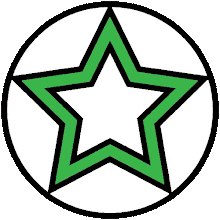CAMPBELL, aka SKYYWALKER, et al. v. ACUFF ROSE MUSIC, INC.
Decision of the court – how was the case decided, including an analysis of any concurring or dissenting opinions in previous case precedent
The case was originally decided by The District Court that 2 Live Crew was a parody and was Fair Use. The case was then taken to the Court of Appeals where it was said it was an infringement on Acuff-Rose. The Court of Appeals believed they had taken the heart of the song. It was then taken further to the Supreme Court where it's final decision was made. The Supreme Court found that the Court of Appeals had made a mistake. The "heart" of the song is was makes a parody, an parody.
(e) The Court of Appeals erred in holding that, as a matter of law, 2 Live Crew copied excessively from the Orbison original under the third §107 factor, which asks whether "the amount and substantiality of the portion used in relation to the copyrighted work as a whole" are reasonable in relation to the copying's purpose. Even if 2 Live Crew's copying of the original's first line of lyrics and characteristic opening bass riff may be said to go to the original's "heart," that heart is what most readily conjures up the song for parody, and it is the heart at which parody takes aim. Source
The Court of Appeals had also made a mistake in how the song effected the market. The two songs were intended for different markets. 2 Live Crew's version would not infringe on the market of Acuff-Rose.
"As to parody pure and simple, it is unlikely that the work will act as a substitute for the original, since the two works usually serve different market functions. The fourth factor requires courts also to consider the potential market for derivative works." Source
It was error for the Court of Appeals to conclude that the commercial nature of 2 Live Crew's parody of "Oh, Pretty Woman" rendered it presumptively unfair. No such evidentiary presumption is available to address either the first factor, the character and purpose of the use, or the fourth, market harm, in determining whether a transformative use, such as parody, is a fair one. The court also erred in holding that 2 Live Crew had necessarily copied excessively from the Orbison original, considering the parodic purpose of the use. We therefore reverse the judgment of the Court of Appeals and remand for further proceedings consistent with this opinion.
Justice Souter delivered the opinion of the court. A concurrence was made by Justice Kennedy. The Supreme Court later reversed and remanded further hearings of the court.

No comments:
Post a Comment